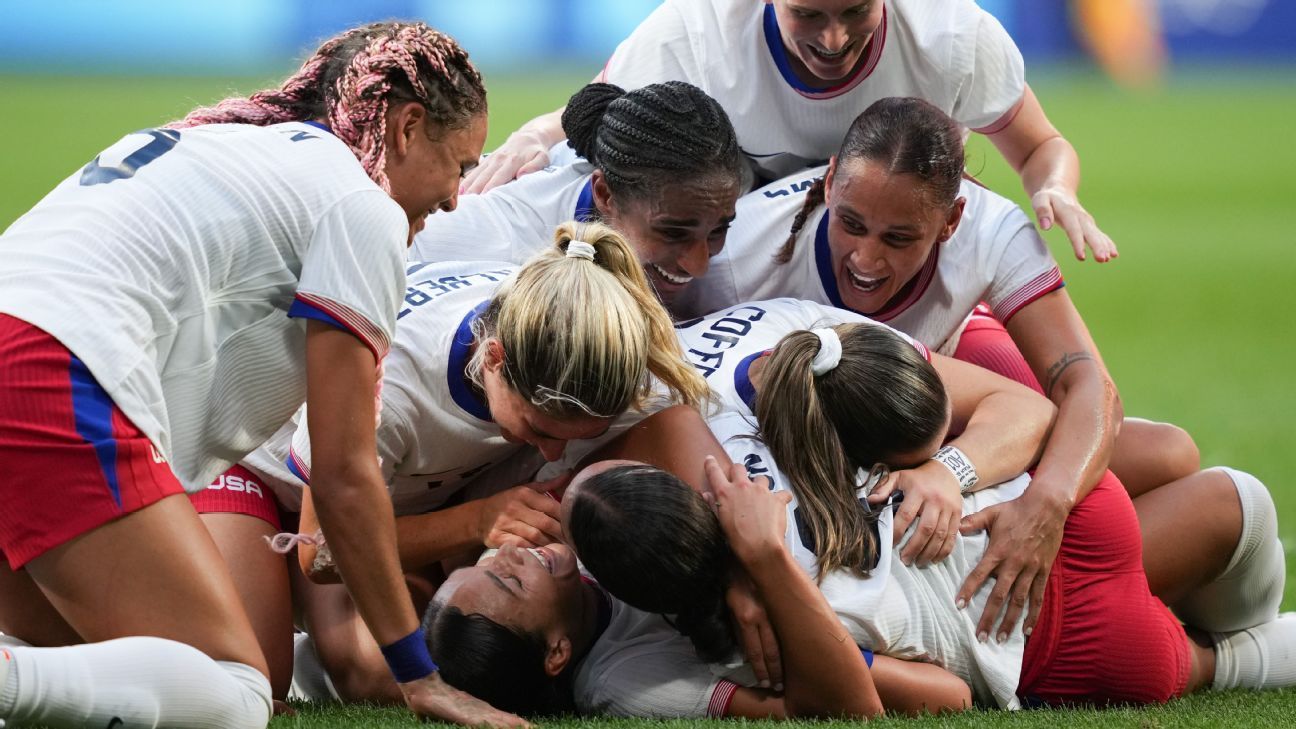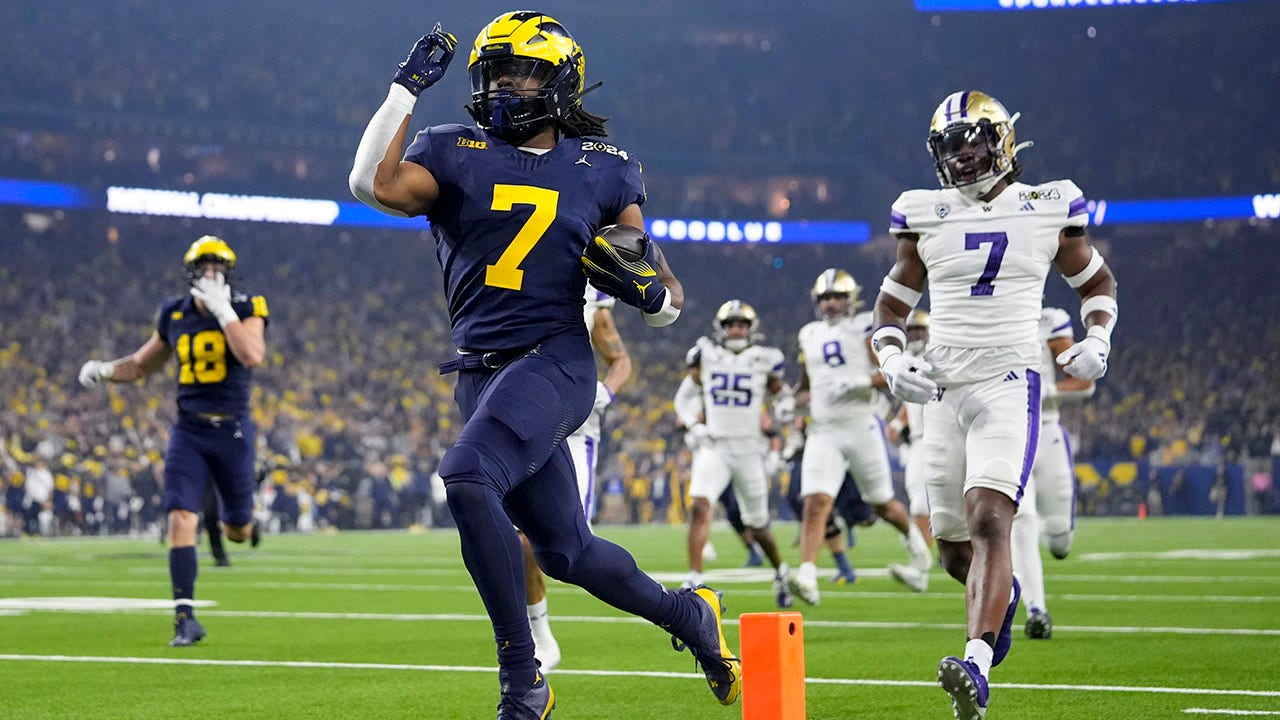LYON, France — It took more work than expected once again, but the U.S. women's national team will play for the gold medal after beating a resilient Germany 1-0 in a semifinal Tuesday night.
Sophia Smith stepped into the spotlight just in time for the Americans, scoring the game-winning goal in the 95th minute that sent the U.S. into the biggest match of this Olympic tournament on Saturday in Paris. It will face either Brazil or Spain, who will play later Tuesday in the other semifinal.
Smith’s goal came late in a slow, stilted game played in hot weather, and if that recipe for U.S. success sounds familiar, that’s because it is. Just three days ago, in the quarterfinals, it was one of Smith’s front-line teammates, Trinity Rodman, who scored in overtime to break a scoreless tie and send the U.S. through to Japan.
Rodman's shot was a rocket, a long-range effort that crashed into the top corner of the goal. This one was more accurate, as Mallory Swanson sent a ball in behind and Smith took advantage of a moment of hesitation by Germany goalkeeper Ann-Katrin Berger and defender Felicitas Rauch.
As the ball rolled between the two Germans, Smith lunged and sent the ball over Berger into the net. She then fell backwards, a combination, almost certainly, of exhaustion and relief, as her teammates fell to her side.
After playing the quarterfinals in front of a packed crowd at the Parc des Princes in Paris, the United States played in a much quieter venue in Lyon. The stadium seats about 60,000 fans, but for this game it was only a quarter full, so nearly everyone in attendance could hear Hayes yelling at her players from the sidelines.
The game also started at a languid pace, likely due both to the intense heat (temperatures were close to 90 degrees Fahrenheit) and some hesitation on the part of the Germans, who were forced to make two unexpected changes to their preferred lineup.
Team captain Alexandra Popp was ruled out at the last minute due to illness, while dynamic forward Lea Schüller was also sidelined with inflammation in her left knee. Considering Germany had both players available in the group game against the United States and still lost 4-1, it was not an ideal development.
As expected, the U.S. started well. With Tierna Davidson back from a knee injury and Sam Coffey back from suspension, the U.S. was able to utilize its Game 1 lineup and immediately went on the attack. Berger made three saves in the first seven minutes, though none of the shots (from Davidson, Rose Lavelle and Smith) were particularly ferocious.
In truth, the best early chance belonged to Germany. Jule Brand turned and fired in from close range and, had it not been for a strong handball from Alyssa Naeher, the Germans would have had a 24th-minute lead that went (largely) against the run of play.
The U.S. continued to probe, often playing down the left, where Crystal Dunn was incredibly active, but just as often was thwarted by Germany’s defensive aggression. The referee’s whistle was constant; Nicole Anyomi sent Emily Fox flying with a shoulder shove that was the most physically violent moment, while Germany finished the first half with 11 fouls to the Americans’ four.
Hayes tried to inject some energy into the hour mark, bringing on Lynn Williams for Lavelle and Swanson dropping back a bit more into midfield, a change that proved crucial. Naomi Girma, who was the best American player in the entire central defense, responded a few minutes in by having Swanson go in behind the German defensive line, but Swanson hit the side-netting as the assistant referee raised her flag.
Smith had an even better chance five minutes from time (she even put the ball in the back of the net), although her clever finish after running in behind was only possible because she was also clearly offside.
As frustrated as they were, that combination was what the U.S. needed. Five minutes into overtime, Swanson tried again, and this time, Smith contained his run perfectly before charging forward to send the U.S. back to Paris.












